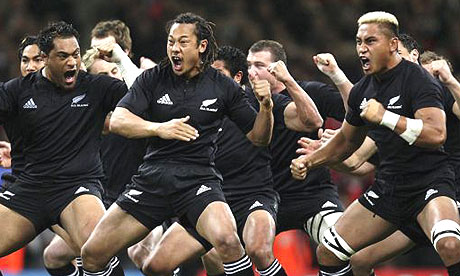
The International Rugby Board must award the 2015 World Cup to a developing nation if they are serious about breaking out of an English "ghetto" and establishing the sport as a truly global game, according to a report published today.
'Putting Rugby First', produced by a group of specialist sports consultants including Quentin Smith, the chairman of Guinness Premiership side the Sale Sharks, concludes that the IRB has failed to maximise its commercial potential and accuses it of lagging behind sports like cricket in expanding into new and lucrative markets.
The IRB is described as "unrepresentative and undemocratic" with too much power in the hands of the eight foundation unions. This is stunting the growth of rugby on the world stage, says the report, which was commissioned by an anonymous group of "committed rugby people", and is damning in its assessment of the IRB's governance structure.
According to co-author William Field, a consultant at Spectrum Value Partners, the decision to award the 2011 World Cup to New Zealand rather than Japan was a prime example of the IRB's failings. "Quite clearly that was a mistake. Deciding to go to Japan would have opened up substantial new markets," he said.
"Rugby union is still stuck in a ghetto. Over half of the world's four million registered players are English and 97% of people watching last year's World Cup final came from foundation unions. There is a deep, systemic problem within rugby. The perspective needs to shift to be more international. Globalisation needs to become the number one agenda item within rugby.
"The first question in any decision made by the IRB must be: 'how does this push forward globalisation?' A cultural shift needs to take place. The World Cup is one of the biggest decisions the IRB has to make. It is important rugby makes the right decision next time."
The IRB will announce the host nations for the 2015 and 2019 World Cups next July. The report makes five other key proposals, the most important of which Field believes is reforming the IRB's structure and improving its corporate governance.
"The structure of the IRB risks enshrining parochialism," said Field. "It could take just four foundation unions to veto proposals agreed by 111 other nations. Unless the game shakes up its structure and strategy, it will not develop the newer nations fast enough and will continue to lag behind other more innovative sports in the competition for global fans and finance."
Field drew a comparison with cricket, where the Twenty20 game has opened the sport up to new supporters, while rugby, by contrast, failed in its bid to have Sevens included at the 2012 Olympics. Remedying this for 2016 is another of the report's six key points.
"The ICC recognise the major debate is about globalisation in sport," he said. "In some ways the IRB have already done a lot of things right in that respect with Argentina reaching the semi-final of the World Cup. But compared to other sports there is not enough of a joined-up strategy, which I think Twenty20 is doing for cricket."
"Argentina came third in the World Cup but they aren't given the security of a regular competition until 2012. That is symptomatic of the problem," added Field. Including the Pumas in either the Six Nations or the antipodean Tri-Nations tournament has proved difficult, and the report states that reform must be supported by both the northern and southern hemispheres, "whose interests are not always aligned".
'Putting Rugby First', which will be sent to the IRB early next week, also calls for a five year plan for rugby's global development and specific programmes aimed at delivering growth in "priority territories".

